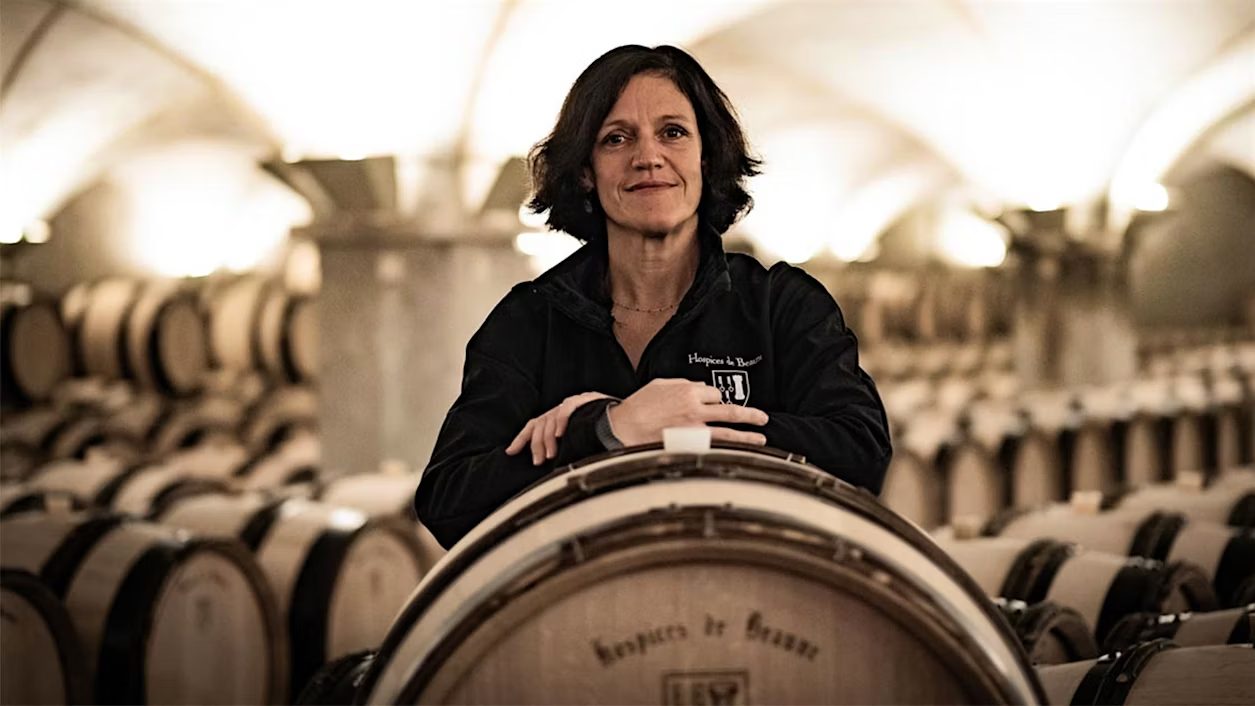Effective wine cellar management is a fundamental aspect of wine appreciation that elevates the entire experience for enthusiasts and connoisseurs alike. Proper organization of a wine collection allows for easy access and retrieval, enhancing the enjoyment of selecting the perfect bottle for any occasion. An organized cellar not only streamlines the process of choosing wine but also ensures that each selection is at the optimal temperature and condition for serving.
Tracking inventory is a critical component of wine cellar management. By maintaining accurate records of the bottles in a collection, wine lovers can avoid the frustrations of duplicate purchases and ensure they never run out of preferred varieties. Advanced inventory tracking systems can alert collectors to bottles that may be nearing their peak drinking window, thus enabling timely consumption. This proactive approach not only enhances the pleasure of wine tasting but also aids in making educated decisions regarding purchasing new bottles to add to the collection.
Maintaining optimal storage conditions is another vital aspect of wine cellar management. Different types of wine—such as red, white, and sparkling—require specific environmental conditions to preserve their unique characteristics. Factors including temperature, humidity, and light exposure play essential roles in the aging process and overall quality of wine. A well-managed cellar takes these variables into account, ensuring that each bottle is stored in an environment conducive to its longevity and flavor profile.
Ultimately, understanding the importance of wine cellar management leads to enhanced wine preservation, superior tasting experiences, and a more enjoyable journey through the diverse world of wines. By prioritizing organization, tracking inventory, and maintaining ideal storage conditions, wine lovers can truly experience the full potential of their collections.
Features to Look for in a Wine Cellar Management Tool
In the realm of wine collection and storage, selecting a robust wine cellar management tool significantly enhances the experience for enthusiasts. A top-notch management tool should encompass various essential features that cater to both novice and seasoned wine connoisseurs. Firstly, a user-friendly interface is paramount. A clean, intuitive design allows individuals to navigate the software effortlessly, whether they are inputting new acquisitions or searching through their inventory.
Inventory tracking capabilities stand as a cornerstone feature. A reliable wine cellar management tool should enable users to catalog their collections efficiently, tracking details such as varietals, vintages, purchase dates, and storage conditions. This functionality not only simplifies inventory management but also assists in making informed decisions regarding when to consume or sell particular bottles.
Another critical feature is the inclusion of tasting notes. Such functionality allows collectors to document their personal experiences with each wine, fostering a deeper connection to their collections and aiding memória. Additionally, food pairing suggestions can elevate dining experiences by offering personalized recommendations based on the wines within one’s cellar. This feature enhances the role of wine in social gatherings and promotes greater enjoyment of both food and wine.
Finally, access to wine ratings from trusted sources adds significant value to the management tool. This feature enables users to understand the quality and reputation of their bottles, assisting in making sophisticated choices regarding consumption or sale. Overall, the integration of user-friendly interfaces, comprehensive inventory tracking, personal tasting notes, food pairings, and access to ratings creates a holistic wine cellar management experience that not only simplifies the process but also enriches engagement with the art of wine collection.
Top Wine Cellar Management Tools on the Market
Wine lovers today are fortunate to have access to a variety of wine cellar management tools designed to streamline the organization and tracking of their collections. These tools vary significantly in features, ease of use, compatibility with various devices, and pricing, making it essential for collectors to evaluate their options. Below is an overview of some leading wine cellar management tools available to enthusiasts.
One prominent tool is CellarTracker, which offers an extensive database of wines, allowing users to log their collections and track tasting notes. CellarTracker is user-friendly and accessible on multiple platforms, including smartphones and tablets, ensuring collectors can manage their wines on the go. User reviews often praise its community features, where individuals can share tasting notes and reviews, enriching the wine-tasting experience.
Another popular option is Wine Cellar Complete. This software caters to serious collectors, providing detailed inventory tracking and reporting capabilities. Wine Cellar Complete features a straightforward interface and offers options for customizing wine information. Its compatibility with both Windows and Mac computers makes it a versatile choice. However, its complexity may be overwhelming for casual users, as it requires a deeper understanding of wine management.
Inventory Pro presents a streamlined approach to wine cellar management, focusing on ease of use. This tool emphasizes simplicity by allowing users to log wines quickly and generate reports with just a few clicks, appealing to novices in wine collecting. An added advantage is its mobile compatibility. However, some users report that it lacks certain advanced features found in other tools, which may limit its functionality for experienced collectors.
Lastly, VinoServer integrates inventory management with an online wine shop, providing a unique blend of functionalities. This tool facilitates cataloging wines while also allowing users to purchase wines directly through the platform. While its pricing is relatively higher than other options, users appreciate the convenience of having everything in one place.
In conclusion, selecting the right wine cellar management tool ultimately depends on the individual collector’s needs and preferences. Evaluating features, ease of use, device compatibility, and pricing will help wine enthusiasts make an informed decision about which tool best suits their collection. User reviews and comparisons can further guide this important choice, ensuring a smooth experience in managing a wine collection.
Tips for Maximizing the Use of Your Wine Cellar Management Tool
To fully leverage the capabilities of your wine cellar management tool, it is essential to incorporate a few best practices into your routine. One of the most important steps is conducting regular inventory updates. Frequently noting any additions or removals from your wine collection allows the management system to maintain accuracy and ensures that you always have an up-to-date view of your stock. This practice minimizes the chances of over-purchasing or running out of favored wines.
Furthermore, utilizing tasting notes effectively can significantly enhance your overall experience with wine. When you taste or enjoy a particular bottle, take a moment to record your thoughts in your management tool. Insights about flavors, pairings, and aromas can offer invaluable guidance for future selections and help you identify your preferences. By creating a comprehensive record of your tasting experiences, you can refine your wine choices and expand your palate.
Additionally, analyzing consumption trends will empower you to make informed purchasing decisions. Your wine cellar management tool can reveal patterns in your drinking habits, such as specific varietals or regions that you gravitate towards during certain seasons or events. Understanding these trends can drive your buying strategy, allowing you to stock up on well-loved wines and experiment with new options that align with your preferences.
Integrating these practices into your wine collection habits will not only enhance the management of your cellar but also boost your overall enjoyment of wine. By taking the time to maintain an organized inventory, document tasting experiences, and analyze your consumption patterns, you will transform your wine cellar into a personalized and optimized collection that reflects your unique tastes. Regular engagement with your wine cellar management tool ultimately paves the way for a more enjoyable and enriching wine journey.










Does anyone else think that AI can also revolutionize wine cellar management in the near future?
Definitely! AI can revolutionize anything, even wine cellars. Skys the limit with technology!
Does anyone else wonder if the ultimate wine cellar management tool really exists, or is it just a marketing gimmick?
Marketing gimmick or not, nothing beats personal taste and a well-kept notebook!
Interesting piece! Just wondering, whats the learning curve for these wine cellar management tools? Any user-friendly options for beginners?
Does cellar management really affect a wines taste that much though?
Does anyone else find wine cellar tools overrated? I mean, is it really necessary?
Anyone else think a good cellar tool can make or break your collection?
Does the ultimate wine tool also manage champagne collections effectively?
Does anyone else find the ultimate tools always miss essential features?
Isnt the ultimate wine cellar tool just having a good palate and knowing what you like?
Sure, but having the right tools can turn a casual sipper into a connoisseur.
So, are these tools as effective for casual wine drinkers, or just connoisseurs?
Does anyone else think a cellar tool can truly capture a wines essence?
Does anyone else contemplate if these wine cellar tools are really worth it, or just gimmicky? Just a thought.
Does anyone know if these tools cater to budget wine enthusiasts too?
Does anyone know if these wine cellar tools cater to non-vintage collections?
Interesting read, but does anyone think a digital tool can really replace the human touch in managing a wine cellar?
Absolutely! Automation ensures accuracy, eliminates human error. Tech advancement is inevitable, embrace it!
Interesting read! But can any of these tools really surpass the time-tested method of simple pen and paper?
Has anyone cross-compared these management tools with traditional, hands-on cellar management? Curious about the real value-add here.
Interesting read. Do these management tools also predict optimal drinking times? That would be a game-changer for wine enthusiasts!
Just wondering, does anyone else feel that good old pen and paper beat any wine cellar management tool?
Sounds cool, but do these tools actually increase wine value over time?
Isnt the best wine management tool simply drinking and enjoying it?
Anyone else think the best wine cellar tool is still a corkscrew?